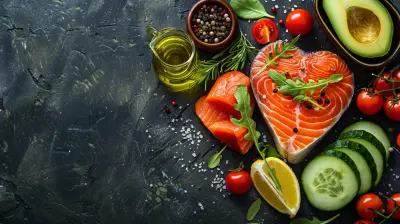The Potential Risks and Health Benefits of a Raw Vegan Diet
5 May 2025
Introduction
The raw vegan diet has gained a lot of attention in recent years. Some swear by its health benefits, while others warn of potential risks. So, is it the ultimate path to wellness, or could it lead to serious health concerns?
In this article, we’ll dive deep into the potential benefits and drawbacks of a raw vegan diet, separating fact from fiction.
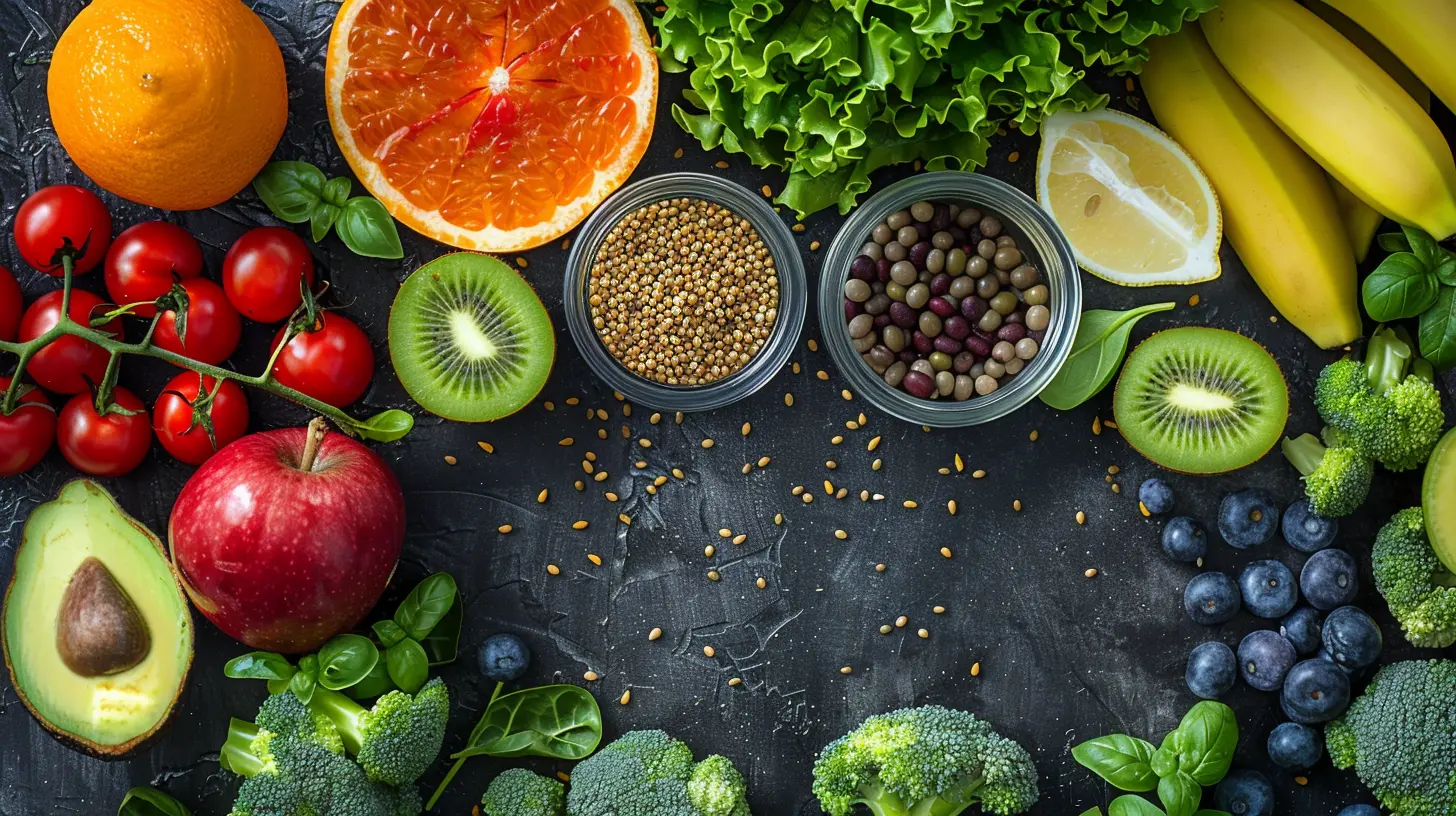
What is a Raw Vegan Diet?
A raw vegan diet combines veganism (no animal products) with raw food principles. This means no cooked food—only raw, unprocessed, and plant-based foods, including:- Fresh fruits and vegetables
- Nuts and seeds
- Sprouted grains and legumes
- Cold-pressed oils
- Fermented foods like sauerkraut and kimchi
The idea is that cooking destroys essential nutrients and enzymes, so eating raw preserves the food's natural goodness. But does science back this up? Let’s find out.
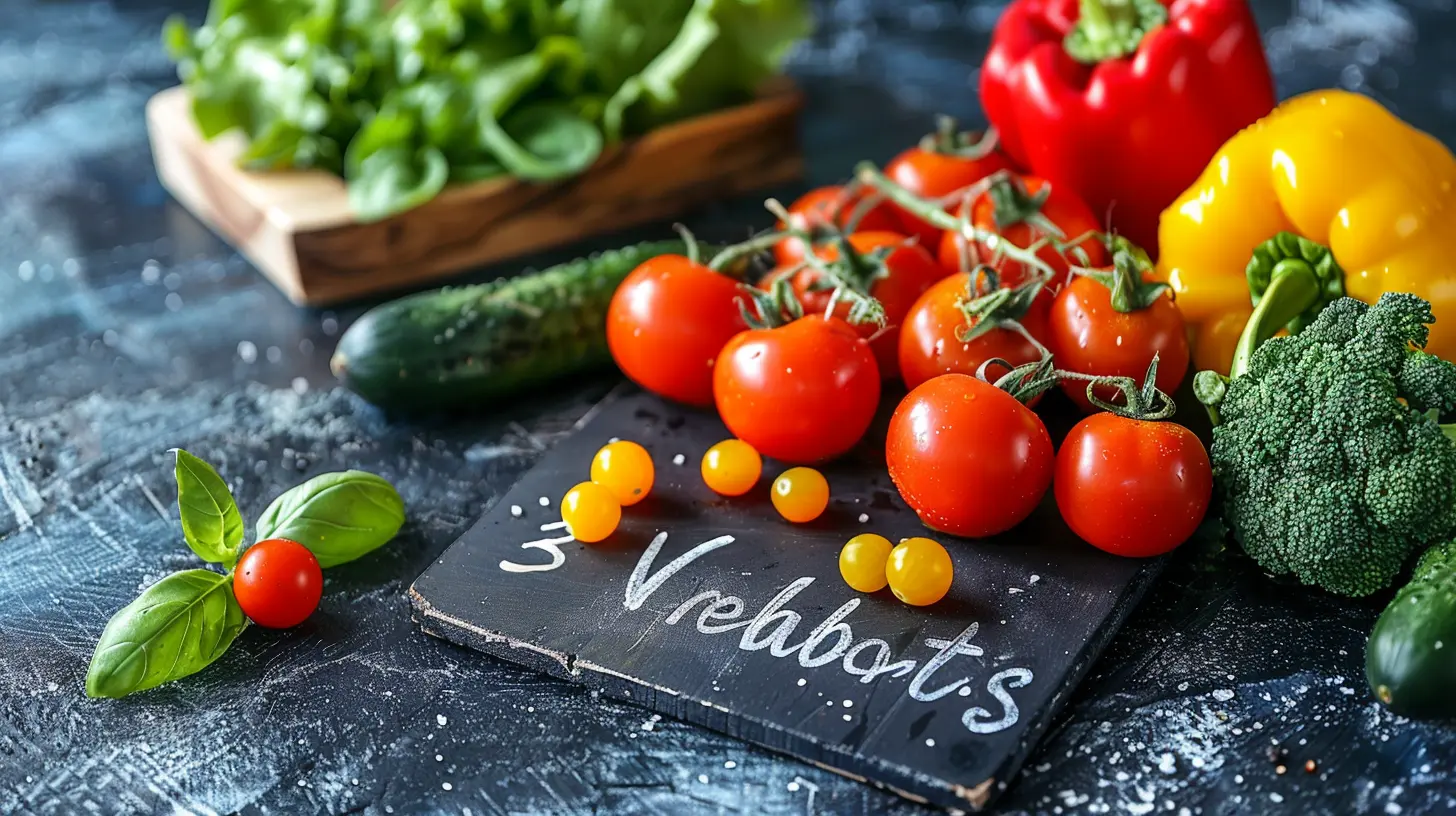
The Health Benefits of a Raw Vegan Diet
There’s no doubt that eating a diet rich in whole, plant-based foods has its perks. Here are some of the key health benefits of a raw vegan diet.1. Rich in Nutrients
Since raw vegan diets emphasize fresh fruits, vegetables, nuts, and seeds, they’re naturally packed with essential vitamins, minerals, and antioxidants. These nutrients help boost immunity, improve skin health, and reduce inflammation.For example, leafy greens like spinach and kale are loaded with vitamin C and iron, while nuts and seeds provide healthy fats and protein.
2. Supports Weight Loss
A raw vegan diet is typically low in calories but high in fiber, which helps you feel full longer. This can naturally lead to weight loss without strict calorie counting.Plus, since processed foods are off-limits, you’re less likely to consume empty calories from sugary snacks or refined grains.
3. Improves Digestion
Fiber is a superstar when it comes to gut health, and raw vegan diets are full of it. Fiber helps regulate digestion, prevents constipation, and supports healthy gut bacteria.Raw foods also contain natural enzymes that may aid digestion, reducing the need for your body to produce them.
4. May Reduce the Risk of Chronic Diseases
Eating plenty of raw fruits and veggies has been linked to a lower risk of heart disease, diabetes, and certain cancers. The high antioxidant content helps protect cells from damage, reducing inflammation and oxidative stress.A diet rich in whole, plant-based foods can also help lower cholesterol and blood pressure, further protecting heart health.
5. Increases Energy Levels
Many people who switch to a raw vegan diet report feeling more energetic. Without processed foods and excessive sugar crashes, the body functions more efficiently, leading to sustained energy throughout the day.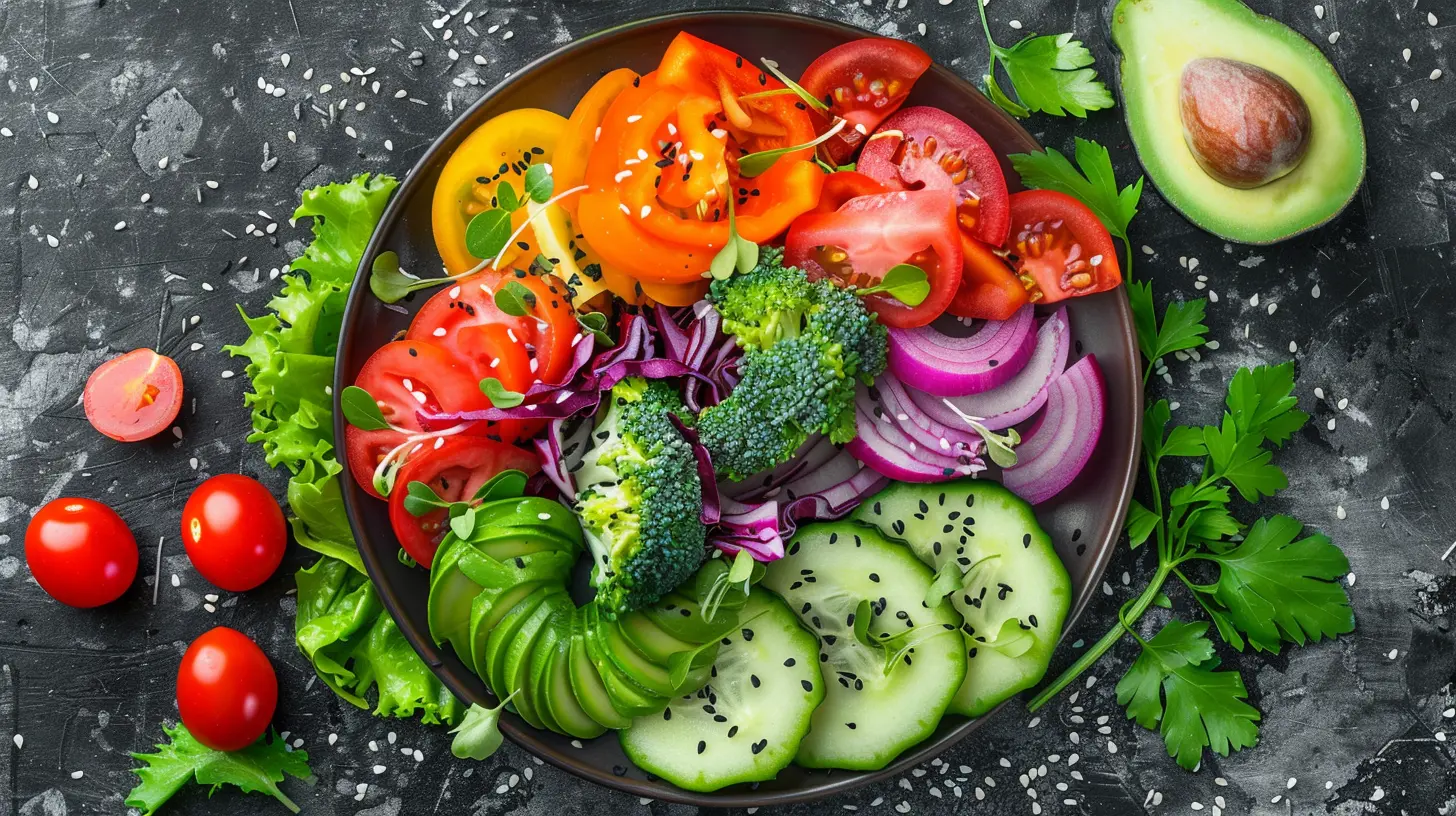
The Risks of a Raw Vegan Diet
While there are clear benefits, a raw vegan diet isn’t without its downsides. Here are some potential risks to watch out for.1. Risk of Nutrient Deficiencies
Cutting out all cooked foods—and animal products—can lead to nutrient deficiencies. Some key nutrients that may be lacking include:- Vitamin B12 – Found mostly in animal products, a deficiency can lead to fatigue, weakness, and nerve damage.
- Iron – Plant-based iron (non-heme) isn’t as easily absorbed as animal-based iron, which can lead to anemia.
- Protein – While there are plant-based protein sources, it can be challenging to get enough, especially without legumes.
- Calcium – Essential for bone health, but dairy-free diets need alternative sources like sesame seeds and leafy greens.
- Omega-3 Fatty Acids – Found in fish, but plant-based sources like flaxseeds and walnuts may not provide enough.
Without careful planning or supplementation, deficiencies can develop over time, leading to serious health issues.
2. Difficulty in Meeting Caloric Needs
Raw foods are naturally lower in calories, making it harder to consume enough energy—especially for athletes or highly active individuals.This can result in weight loss that’s too rapid, fatigue, and even muscle loss.
3. Potential Digestive Issues
While fiber is great for digestion, too much of it—especially from raw foods—can cause bloating, gas, and stomach discomfort. Some people might struggle with excessive fiber intake, leading to digestive distress.Also, certain raw foods contain anti-nutrients that can interfere with digestion and nutrient absorption. For instance, raw beans and some grains contain lectins and phytic acid, which can hinder mineral absorption.
4. Food Safety Concerns
Cooking helps kill harmful bacteria and parasites. Eating raw foods, especially sprouted grains and legumes, can increase the risk of foodborne illnesses.Improper handling or consuming unwashed produce can expose you to pathogens that may cause food poisoning.
5. Social Limitations and Practicality
Let’s be honest—sticking to a raw vegan diet in a social setting can be challenging. Most restaurants don’t cater to strict raw diets, making dining out difficult.Meal prep can also be time-consuming, and access to fresh, high-quality raw foods may not always be practical or affordable.
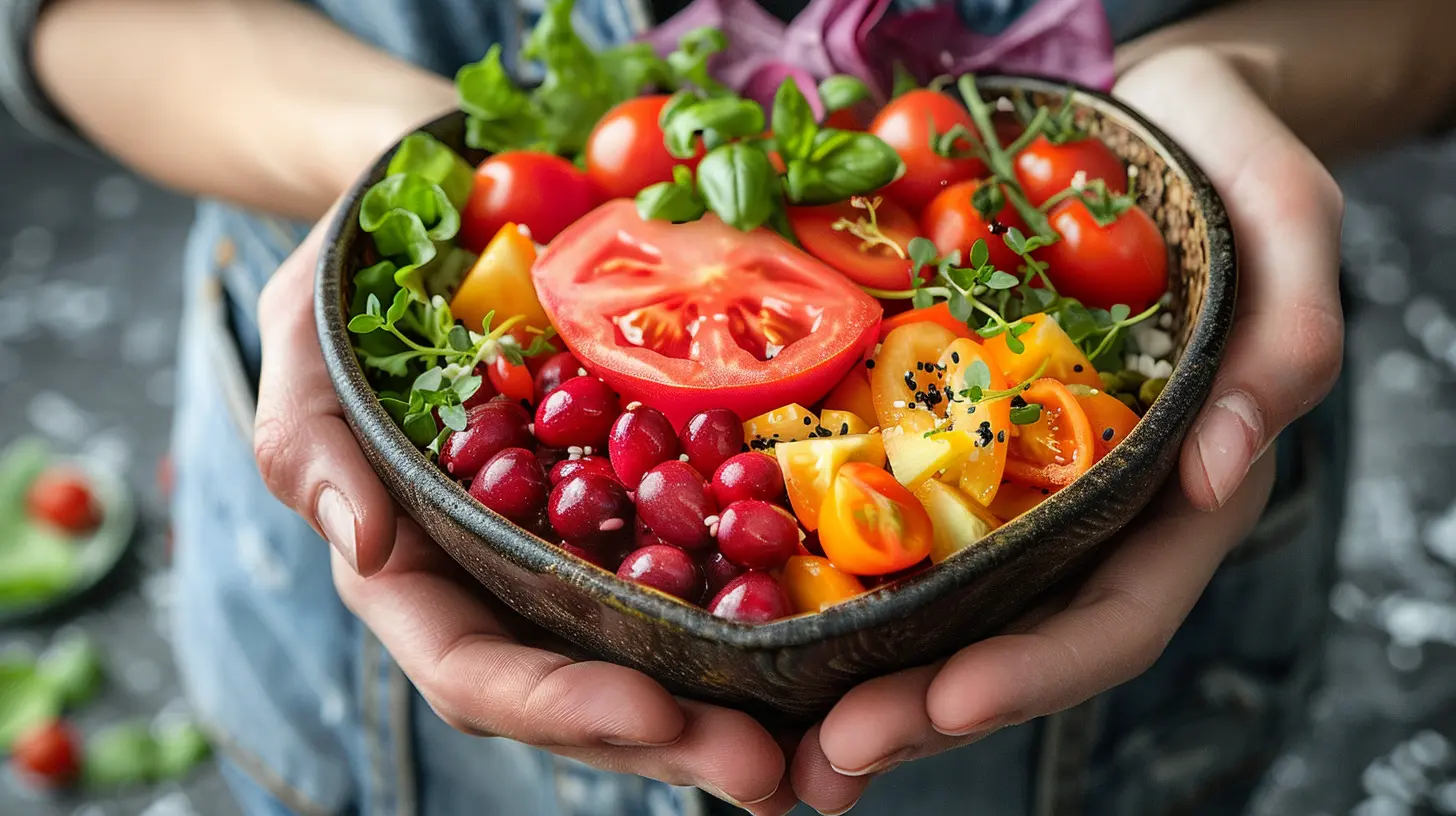
Is a Raw Vegan Diet Right for You?
Like any diet, a raw vegan approach has both upsides and downsides. If you’re considering making the switch, here are a few things to keep in mind:- Listen to your body. If you feel weak, tired, or experience digestive issues, you may need to modify your diet.
- Consider supplementing. A B12 supplement is essential, and you may need extra protein, iron, or omega-3s.
- Ease into it. Going 100% raw overnight can be overwhelming. Try incorporating more raw meals gradually.
- Be flexible. A completely raw diet isn't necessary for health benefits. Some people thrive on a mostly raw diet with some cooked foods.
Conclusion
A raw vegan diet offers impressive health benefits, such as nutrient density, weight loss, improved digestion, and reduced disease risk. However, it also comes with challenges, including nutrient deficiencies, potential digestive issues, and food safety risks.Ultimately, the best diet is the one that works for YOU. If you’re interested in going raw, start slowly, stay informed, and make adjustments as needed to maintain balance and nourishment.
Would you try a raw vegan diet? Or do you prefer a mix of raw and cooked foods? Let us know in the comments!
all images in this post were generated using AI tools
Category:
Vegan DietAuthor:

Tiffany Foster
Discussion
rate this article
4 comments
Solstice Lynch
Great insights! It’s all about balance—while the raw vegan diet has its perks, understanding the risks ensures we make healthier choices for ourselves.
May 13, 2025 at 2:23 AM

Tiffany Foster
Thank you! I'm glad you found the insights valuable. Balance is indeed key to making informed dietary choices.
Orionis Shaffer
Great insights! A raw vegan diet can be refreshing and nourishing, but it's essential to stay informed about potential deficiencies. Balance is key to enjoying both health benefits and tasty meals!
May 9, 2025 at 3:53 PM

Tiffany Foster
Thank you! You’re absolutely right—balance and awareness of nutritional needs are crucial for maximizing the benefits of a raw vegan diet.
Callista Sullivan
Raw veganism: a vibrant path or culinary gamble? Balance is key for optimal health.
May 8, 2025 at 3:59 PM

Tiffany Foster
Thank you for your insight! Striking a balance is indeed essential when exploring the raw vegan diet's benefits and risks.
Sarah Hines
Raw vegan diets offer benefits, but risks warrant caution.
May 7, 2025 at 3:25 AM

Tiffany Foster
Thank you for your comment! It's important to weigh both the benefits and risks of a raw vegan diet to make informed dietary choices.
